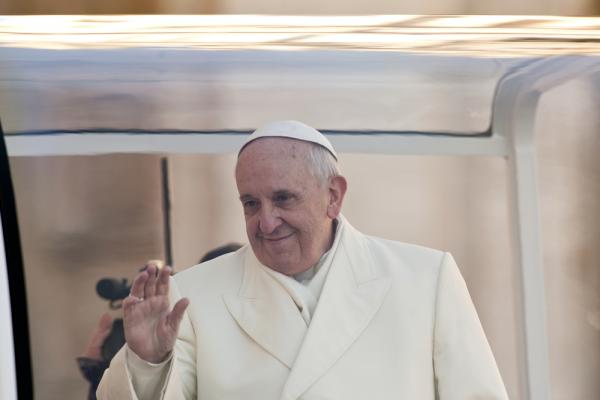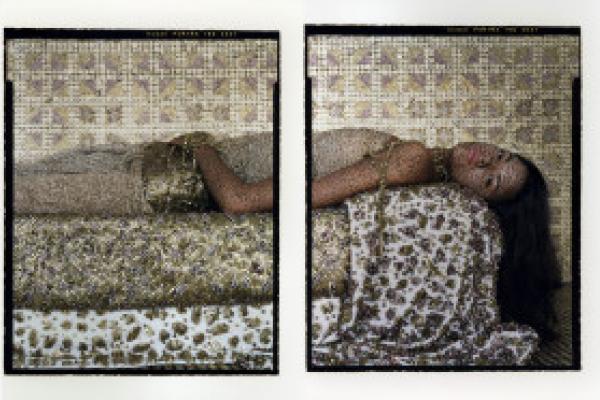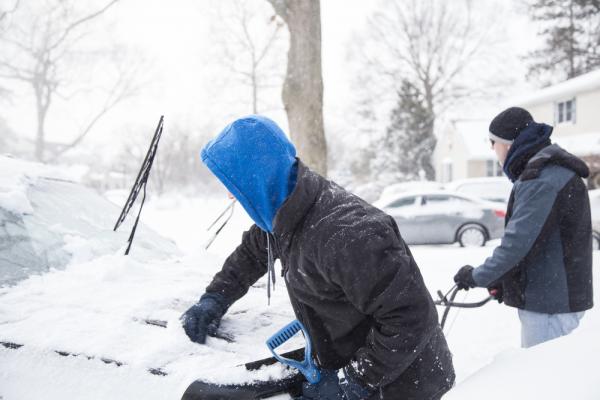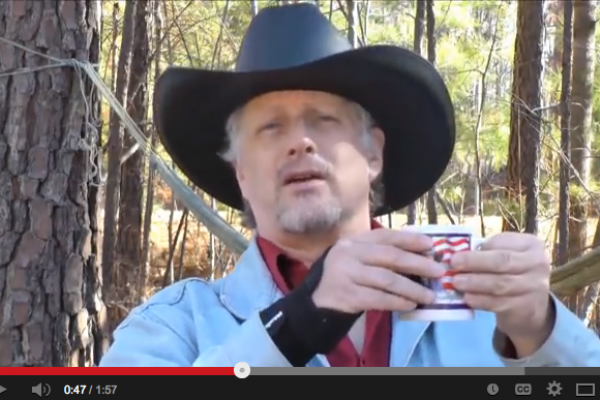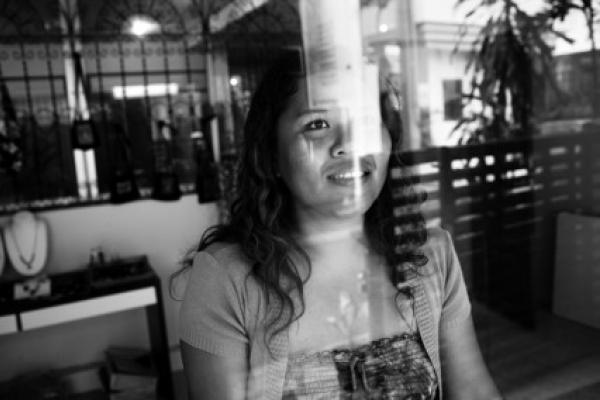The other day I observed a Twitter exchange between Pope Francis and Miroslav Volf.
Pope Francis (@Pontifex) Tweeted:
“God does not reveal himself in strength or power, but in the weakness and fragility of a newborn babe.”
To which Miroslav Volf (@MiroslavVolf) replied:
“@Pontifex How true! And yet the babe grew and taught with power and authority, and the crucified one was raised from the dead in glory.”
Since moving to the Navajo reservation more than a decade ago, I have done much thinking, studying, praying, and reflecting on the dynamics between power and authority. And God has given me a few insights over the years. So when I read these tweets I had an instant desire to jump in and be a part of the discussion.
I stood in line and waited until they called my number.
“Neeeext,” the woman behind the counter called!
The woman put out an energy that dared anyone to cross her, challenge her, even speak to her. She gave me a pile of papers to fill out “over there,” she waved her hands dismissively in the general direction of all the other losers sitting in rows of old school desks — the kind where the chair and the desk are attached. They were all fully engrossed in one task: filling out their unemployment insurance applications. I joined them.
Of course we weren’t losers, but it felt like we were. We were grown adults. We represented many races: white, black, Latino, and Asian. We represented a small fraction of the sea of people who were out of work at the height of the economic crisis. If you had come to us only weeks before we were school teachers and firemen, opera singers, Wall Street brokers, and justice advocates (like me). But now we were all numbers, experiencing the same humiliating moment together.
But, how much more humiliating it would have been to be thrown out of my apartment? How much more dehumanizing would it have been to become homeless or go without food?
An Iraqi woman dons a black hijab but bares her thighs. A Lebanese woman wearing a sheer blouse curls up on a bed, both innocent and seductive. An attractive young Iranian couple shares breakfast at a small table, seemingly oblivious to the tank looming just a few yards away.
There are no harems, belly dancers, or male oppressors in this photography show, nor any of the other Middle Eastern stereotypes that Westerners generally associate with that far away, often misunderstood, region.
“She Who Tells a Story,” a photo exhibit now showing at Boston’s Museum of Fine Arts and headed to other U.S. museums, features the work of 12 women from the Middle East who shatter stereotypes with works that are provocative, beautiful, mysterious, and surprising, all at the same time.
Last Thursday, as I carefully navigated my way home from work on the slippery streets of a few Chicago suburbs, I was listening to a talk radio program. The host reminded his listeners that he broadcasts from sunny Arizona, and then he said, “I know that many of you have had large amounts of snowfall. I recommend that you sit back and enjoy the beauty of the snow.”
At which point I yelled some expletives about what he could do with his recommendation and promptly changed the station.
It’s been a brutal winter. Indeed, we’ve already had “large amounts of snowfall.” Yesterday in Chiberea (that’s an amalgamation of Chicago and Siberia, for those keeping score), the high was negative 13 and today the high will be positive 3. Yay for staying positive, Chicago.
Staying positive about the weather is becoming more difficult. The snow, while pretty, will be here from late November to early March. It. Gets. OId. And schools have been canceled for two days in a row. Listen, I love my kids, but they’ve been stuck inside for the past five days. We are all experiencing cabin fever.
But there’s one thing about Chicago winters that I can appreciate. The relentless snow and the extreme cold provide an opportunity to build a sense of community. Neighbors suffer through this weather together. We check in on one another to make sure people are surviving and staying warm. And, of course, we create a sense of community by uniting against the weather. The snow and the cold become our common enemy. Or, as René Girard’s mimetic theory puts it, the weather has become our scapegoat.
A few weeks ago, I got one of those viral emails from a guy who shares my interest in Lutheran hymnody — but, most emphatically, not my politics. It linked to a video called “Liberals With Guns!” that claims the shooters at Fort Hood, Columbine High School, Virginia Tech, Sandy Hook and the movie theater in Aurora, Colorado, were all “liberals” and/or “registered Democrats.” It featured “Wild Bill” Finlay, a self-proclaimed “Judeo-Christian values” type of guy wearing a self-satisfied expression and a cowboy hat.
Before hawking a “Wild Bill for America” coffee cup for $14.39 (plus shipping) at the end of the video, Finlay proposes that “every registered liberal Democrat be placed on the mentally ill list, and because mental illness is akin to incompetence, we should consider removing them from certain positions of responsibility. … The liberals of America try so hard to strip others of their rights, perhaps we should give them a taste of their own medicine.”
Ha-ha. Funny guy.
A small delicate silver cross hangs around Mint’s neck, a charm she reaches for nervously from time to time as she speaks.
Mint is her nickname, an Anglicized version of the long Thai name she was given and would rather not make public. As a former prostitute, the 24-year-old is concerned about bringing shame to her family, though she says everyone in her village in the northeastern province of Issan — a poor agricultural region along the border with Cambodia and Laos — would assume, or simply know, she had to be doing sex work to send money back home.
Everyone in Bangkok knows how it works. Many of the countless massage parlors, go-go bars, and karaoke joints peppered throughout the city are frequently thinly veiled fronts for prostitution. Heavily made-up girls hang around in the periphery of joints catering to Western tourists.
